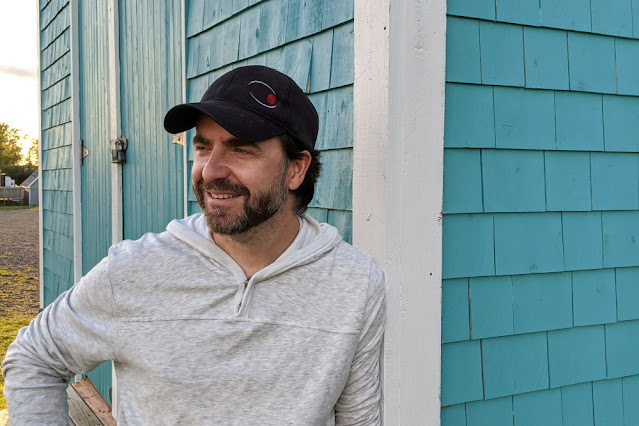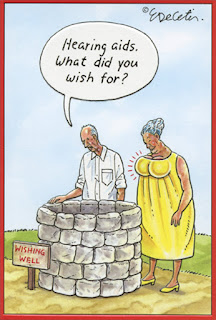We are all anxiously waiting for Steve's novel - Deficiency - to hit the bookshelves. It's happening soon.
Steve is with us this week to tell us about his story and how it came into being.
He has been featured on the Scribbler before and you can see his previous posts by following these links.
Take it away, Steve -
On
December 2nd, my third book, “Deficiency”, is coming out. Wait a
minute, did I say third? That’s hard to believe. If someone had told me 10 years
ago that I would have three books published by now, I wouldn’t have believed
them. In some ways, a part of me still doesn’t believe that those books are out,
available to the world, and more importantly, a creation of mine.
People
often ask me how I find the time to write. My answer is that it’s not necessarily
about finding the time (although that helps), but about focusing on small steps,
completing them and repeating them until you reach the end. In writing, you start
with one word and then add a few more. Soon, you’ll have a sentence, and later
a paragraph. Then, you’ll find yourself with a chapter, and eventually (many
days or months or even years later) you’ll wake up with a book on your hands.
And if you don’t stop even then, you could end up with three.
From “Deficiency”:
Glass buildings from Quadrant X sped by
outside the window, some as tall as 200 levels. Most days, the sight was
impressive. This morning, though, Artenz was not able to enjoy the view.
I
started writing “Deficiency” six years ago. My initial goal was to write a
short story and one month later, the first draft was done. The only problem was
that it didn’t work. It’s never easy to admit when a piece of writing doesn’t
work, but it’s even harder to make it work when it can’t. In this case, I had a
longer story to tell and the short form would simply not do.
Also,
some authors can write a good piece on their first try. Let’s be honest: I’m
not one of them. Over the next few years, I went through fifteen revisions, many
of which were incomplete. On those occasions, I would start to revise but not
make it to the end (because I lost focus or because I changed a detail that
required me to start over). But through all this, I always felt I had something
good, a story worth writing. So, I kept at it.
Finally,
two years ago, I had a solid version and decided to send it to a few readers. The
feedback I received was extremely helpful. More importantly, it was encouraging.
From “Deficiency”:
The main idea for “Deficiency” came from
another story I was writing, titled “Debris” (still in development). I had hit
a wall, and the story was not going anywhere. Or, it was going, but nowhere
promising (stories tend to always be going somewhere). So, I decided to put
“Debris” aside and use one of the original ideas behind it to write a different
story.
The general premise behind this idea was that
you wake up one morning and realize that someone close to you have disappeared,
completely, including all the records of her existence. It’s as if that person
never existed.
This was the idea that started “Deficiency”.
From “Deficiency”:
“There’s her laboratory,” said Zofia.
The door opened. Keidi took a step and
looked inside. The sight weakened her knees.
Although some stories can be challenging to
write, “Deficiency” was surprisingly easy. Even with all its complexity, its
tight and detailed timeline (which is several pages long), its many characters
and even more numerous technologies, all set in an imaginary and futuristic
city, “Deficiency” remained easy to write.
I’m aware how unlikely this is and grateful
for it. And if I forget how lucky I was at the time, the story I’m now working
on is quick to remind me (it’s given me headaches for over two years now!).
Don’t get me wrong, “Deficiency” was a lot
of work. But every time I sat down to write or revise, I only had to put on my
headset to be instantly transported into the storyline. I was always looking
forward to writing and the world became alive in a way that I hadn’t
experienced before. My hope is that readers will be able to experience a bit of
the same.
From “Deficiency”:
In every story, I try to touch on a few subjects
that are important to me. In “Deficiency”, many of those subjects took on a
more personal turn, as they are closely tied to my own experiences. Among
others, I explored the nature of relationships, more specifically the bond
between partners and how challenging it can be to build a life together when
both persons have vastly different backgrounds and perspectives. I also looked
at technologies and the idea that we are often too eager to jump into the next
best thing, without properly understanding the long-term ramifications. And
finally, the story paints a bleak picture of what could happen if greedy
corporations are left unchallenged when their priorities do not align with the
well-being of society.
From “Deficiency”:
A scream almost made him stop.
It sounded unnatural, too loud to be one of the enforcers. It was followed by something else. A long and high-pitched mechanical roar.
“Deficiency” is a science-fiction novel.
It’s also a thriller and suspense story, with elements of cyberpunk and
dystopia. It’s set on a distant planet, in a fictional future that mirror our
own. More importantly, it’s a story about two people whose dreams are shattered
and who find themselves on the run, with nowhere to hide and nowhere to go.
It was a great project to work on and I can
only hope that readers will have as much fun reading it as I had writing it.
https://sceston.ca/Stories?id=9.





































